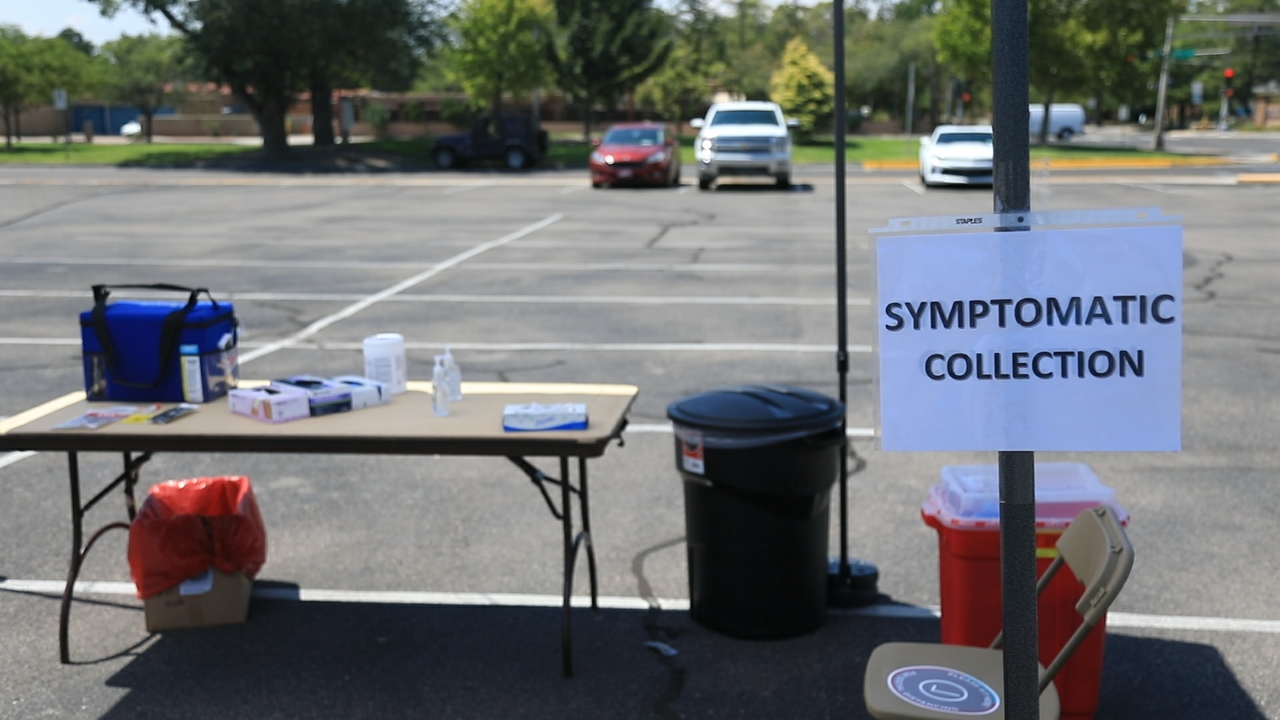Preparing for Disaster: UNM Hospital Participates in Region-Wide Emergency Training

Road to Recovery
UNM Health Sciences Joins National Study of Long COVID Symptoms
The University of New Mexico Health Sciences Center is joining two large national studies of patients experiencing “Long COVID” – a troubling array of symptoms that linger after a SARS-CoV-2 infection has cleared.
The RECOVER (Researching COVID to Enhance Recovery) Initiative, funded by the National Institutes of Health (NIH), hopes to enroll tens of thousands of patients at institutions around the country and will include both adult and pediatric cohorts.
UNM expects to enroll 200 adults and 100 children, including people already experiencing symptoms and those newly diagnosed with COVID-19, said Hengameh Raissy, PharmD, Research Professor in the Department of Pediatrics and co-principal investigator on both studies.
According to the NIH, symptoms following SARS-CoV-2 infection may include fatigue, shortness of breath, “brain fog,” sleep disorders, fevers, gastrointestinal symptoms, anxiety and depression. Symptoms can persist for months, ranging from mild to incapacitating. In some cases, new symptoms arise well after the time of infection or evolve over time.
Current data suggest that about 10-30% of those who have had an acute infection will experience persistent symptoms lasting at least one month, according to the NIH.
The studies seek better understanding of how many people experience long-term symptoms (or develop new symptoms) and what the underlying biological cause might be
The studies seek better understanding of how many people experience long-term symptoms (or develop new symptoms) and what the underlying biological cause might be. This could provide insight into what makes some people vulnerable to these symptoms – and whether they increase the risk for other conditions, such as chronic heart or brain disorders.
“The goal is to identify risk factors, strategies for prevention and predictive biomarkers of adverse long-term outcomes of patients who had infection,” said Michelle Harkins, MD, professor of Internal Medicine and co-principal investigator on the adult study. “The enrollment period is 12 months, followed by two to three years of follow-up.”
The studies will include a close review of medical records, as well as extensive diagnostic screening, such as blood tests and CT and MRI scans, to gather as much information as possible about each patient and their symptoms, Raissy said.

“This is a huge collaboration between the Clinical & Translational Science Center, which applied for the study, UNM Hospital and the Departments of Pediatrics, Internal Medicine, Neurology, Emergency Medicine and Psychiatry & Behavioral Sciences,” she said.
Other investigators in the adult study include Alisha Parada, MD, associate professor in Internal Medicine, Davin Quinn, MD, associate professor in Psychiatry & Behavioral Sciences, and Elyce Sheehan, MD, assistant professor in Internal Medicine.
The co-principal investigator on the pediatric arm is Walter Dehority, MD, MSc, associate professor of Pediatrics. Other investigators include Matthew Kaddish, MD, assistant professor of Pediatrics, and Jerry Larrabee, MD, MEd, professor of Pediatrics.